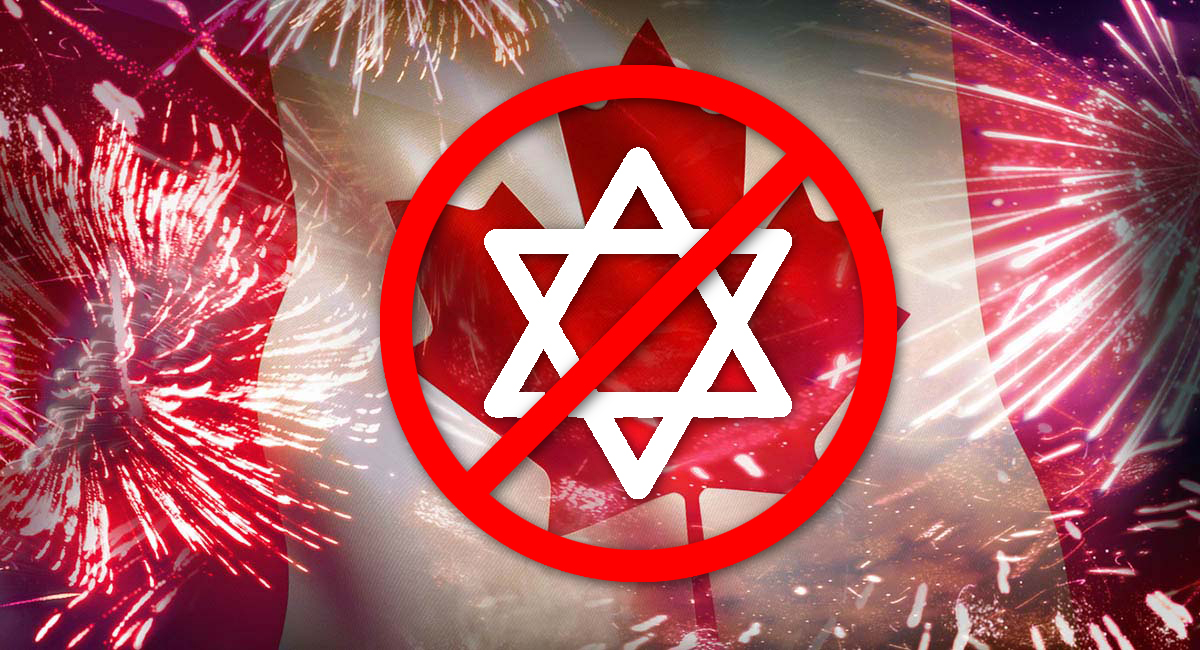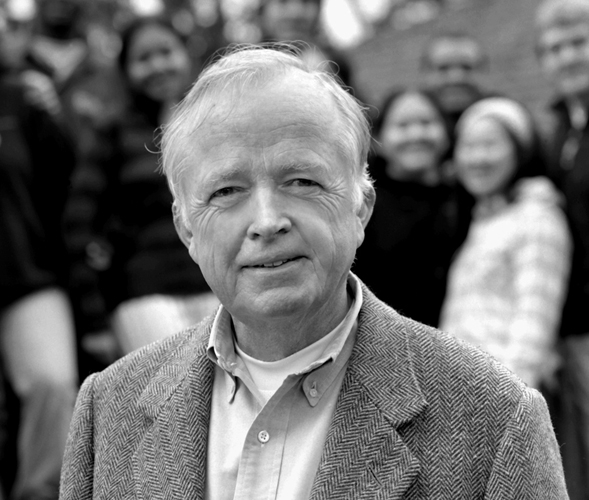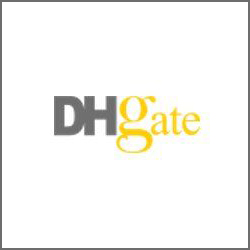
Is Canada an Antisemitic Nation?
By Andrew Faas
In my upcoming book, The Curse of the Bystander, advice is offered on how to avoid being haunted by the consequences of one’s actions or inactions when something terrible happens.
Something terrible is happening to the least amongst us, our Jewish citizens, who are being persecuted because of historical and current events. This, along with conspiracy theories that have plagued Jews worldwide for centuries, is inciting hate, violence, and discrimination that we, as non-Jews, cannot even begin to understand.
To be clear, at 1 percent, “the least amongst us” represents the smallest representative group of Canada’s population. However, we must also acknowledge that the Jewish community has been “the most amongst us” in its contributions to society.
Jews have lived in Canada for over 200 years and have contributed to science, health, technology, the arts, commerce, law, education, and culture. Their contributions to the betterment of humanity are significantly disproportionate to their population size.
Despite this, Jewish Canadians are the primary target of hate crimes. Precise data illustrates the growing severity of this issue, emphasizing the intensity of hatred directed at them compared to all other minority groups, highlighting the alarming nature of this trend and what it could lead to.
King Willem-Alexander of the Netherlands, after the violent attacks against Israeli football fans in Amsterdam, reminded Dutch citizens, “Our history has taught us how intimidation goes from bad to worse,” adding that the country should not ignore “antisemitic behaviour.”
Unlike most, I can better relate to what “our history has taught us” because of my parents’ experiences. Before the occupation of the Netherlands, Jews were assimilated into Dutch society and felt a sense of belonging. As bystanders, my parents witnessed the evolution of rights being stripped away from Jews to the point of dehumanization and then being sent away as part of the “final solution.” They also observed how few non-Jews came to their defense and the many (including family members and close friends) who became complicit. Even though my parents were part of the underground resistance, they were haunted by, as my mother put it just before passing away in her 99th year, “we should have done more.”
Our challenge today, as bystanders, is to stop antisemitism before it “goes from bad to worse,” as it did in the Netherlands.
Many will discard this as hyperbolic because “that is not who we are.” Before the occupation, the Dutch had the same sentiment, and their history of antisemitism was not as bad as Canada’s.
Few Canadians understand that antisemitism has a long history in Canada. It has rarely been limited to society’s extremists; it has often been mainstreamed and shared to varying degrees across all national sectors. Until the 1950s, it was considered somewhat respectable, with few people apologizing for being anti-Jewish. Expressions of antisemitism could be heard in Parliament, found in the press, taught in some schools, and endorsed by some churches.
Given who we were, we need to understand our biases, attitudes, and gullibility to assess who we are today.
Dara Horn, who wrote People Love Dead Jews, provides some insights. “The trough line of anti-Semitism for thousands of years has been the denial of truth and the promotion of lies. These lies range in scope from conspiracy theories to Holocaust denial to the blood liable to the currently popular claims that Zionism is racism, that Jews were settler-colonists, and that Jewish civilization isn’t Indigenous to the land of Israel. These lies are all part of the foundational big lie: that anti-Semitism is a righteous act of resistance against evil because Jews are collectively evil and have no right to exist. Today, the big lie is winning.”
What we are witnessing today is Jewish Canadians being unfairly blamed for the geopolitical issues surrounding the Israel-Palestine conflict. They have little control over this situation aside from their right to support or oppose the actions of the Israeli government, a right that all Canadians share.
The geopolitical situation has provided bad-faith actors with an excuse to express their hatred towards Jews. This hatred extends far beyond hate crimes; it also manifests as discrimination and aggression experienced by Jews in schools, workplaces, and communities. Although some are more subtle than overt hateful rhetoric and actions, they leave wounds just as deep.
Today, Jews in Canada feel abandoned, isolated, and totally petrified. Like the occupied Netherlands, we, as bystanders, neither defend nor support them. Therefore, this small segment of our population is combating a powerful evil force alone.
This starkly contrasts with what other minority groups have seen: allies across society—politicians, educators, the media, corporate, union, community, religious leaders, and ordinary citizens—stepped up when they needed them.
Why?
The national media must bear most of the blame, as antisemitism has not been adequately covered. The lack of visibility and support by the media highlights the significant disparity in how different groups are treated and why most non-Jews are oblivious to or ambivalent about the issue. Further, the coverage does not address antisemitism as a separate and distinct issue from the geopolitical situation, religion, or nationalism.
A recent example of the national media’s negligence was the lack of coverage (except for the National Post) on a study revealing that nearly one-third of Jewish medical practitioners in Ontario are considering leaving the country in response to rising antisemitism. If one-third of doctors in the Black or LGBTQ community were considering leaving, the national media would be all over it.
Conversely, antisemitism on social media has increased, reinforcing the false narrative that “antisemitism is a righteous act of resistance.” Disturbingly, this has resonated with our youth, as evidenced by the nature and conduct of protests at universities and a recent Leger survey that reported that while only 23 percent of Canadians believe Jews are the main target of hate in the country, just 4.9 percent of students share this belief.
Under the shield of ‘academic freedom,’ many teachers and professors have promoted the “righteous act of resistance” in our educational institutions.
Business leaders have been hesitant to defend Jews because they fear their support will be misinterpreted as taking a side in the Israeli-Palestine conflict. This reasoning is weak and cowardly. For them, it is just about numbers: there are far fewer Jews than Muslims and their numerous allies, and they have calculated the risk of backlash.
Antisemitism in the public sector, universities, teachers unions, and faculty associations is rampant, and in policing, antisemitic white supremacists have infiltrated the forces.
Perhaps the most significant reasons there are few non-Jews as allies is how DEI bureaucracies have hijacked the cultures in our educational institutions and workplaces. These organizations often refuse to recognize Jews as a minority, viewing them instead as part of the white colonizers and oppressors. Additionally, they and HR deny Jews the opportunity to express and resolve grievances related to discrimination, bullying, harassment, intimidation, and microaggressions. Cancel culture related to DEI has fueled hate, fear, polarization, resentment, and intolerance. It has also silenced bystanders who witness transgressions against Jews.
So, given all of this, what needs to happen?
There needs to be safety in numbers. The sizes of other minority groups range from 4 percent to 7 percent. Therefore, with 1 percent of the population, at least 2 million of us non-Jews need to become allies to defend and support them. This would put them on a more equal footing with LGBTQ individuals and Black individuals, each representing 4 percent of the population. It should be noted that Muslims represent 5.4 percent.
As allies, we must go beyond the platitudes like “our thoughts and prayers are with you.” Specifically, we need to:
• Learn more about the issue by reviewing the recently published Canadian Handbook on the Working Definition of Antisemitism.
• Join ‘Allies for a Strong Canada recently formed a group to unite Canadians from across the country with the Jewish community.
• Reach out to our Jewish friends, neighbours, associates, and co-workers to ask how they are doing and what we can do for them. What you will hear from them will shock you.
• Challenge derogatory comments and posts, even those made in jest.
• Report comments and actions that incite hate and violence.
• Talk to the young people we are related to or know so they can benefit from an alternative perspective to “the big lie.”
• Lobby politicians at the federal, provincial, and municipal levels to prioritize antisemitism as a crisis and clear and present danger.
• Influence our employers to recognize Jews as a minority and give them the right to express and resolve grievances related to discrimination, bullying, and harassment.
• Influence our employers to make it safe for bystanders to report transgressions against our Jewish colleagues;
• Lobby for making critical thinking part of our educational curriculum to ensure our youth don’t fall prey to “the big lie.”
• Most importantly, all of us must start engaging in some serious dialogue and debate on the issue of antisemitism separate from the geopolitical situation, religion, and nationalism.
Regarding this last point, over the past few months, I have had numerous discussions with non-Jews. The conversations began with a provocative question: “Would you wear a Star of David?” This sparked vigorous dialogue and debate.
Almost everyone expressed surprise that the Jewish population represented only 1 percent of Canada’s population and was either ambivalent or oblivious about the issue. Generally, their perception was that “the Jewish population is large and powerful enough to fend for themselves.”
Everyone appreciated the discussion, expressing how refreshing it was to finally have one on such a complex and controversial issue.
This sentiment should give us hope that we can stop antisemitism from “going from bad to worse.”
We should all view tackling antisemitism as a learning experience for many other complex and controversial issues that we, as citizens, must address in what will continue to be turbulent times.
Andrew Faas is a resident of Saint Andrews, author of From Bully to Bull’s Eye–Move Your Organization Out of the Line of Fire, a Public Voices Fellow at Yale University, and for 33 years was a senior executive with the Weston/Loblaw/Shoppers group of companies.









